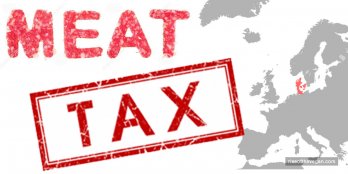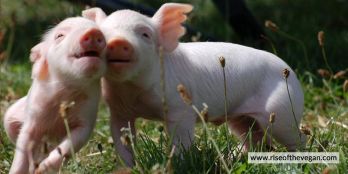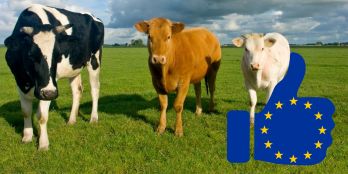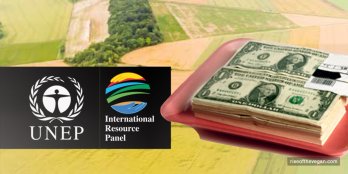
Denmark Considers a Tax on Red Meat to Fight Climate Change
The Danish Council on Ethics, an independent advisory body, has recommended the government implement a climate tax on red meat in an effort to lower red meat consumption and fight climate change.
The meat industry contributes more to greenhouse gas emissions than the combined exhaust from every form of transportation on Earth — a whopping fifth of the total. Beef is the biggest culprit, and it requires almost 30 times as much land and 11 times as much water to produce as pork or chicken.
After debating for six months whether or not to call for government intervention in people’s eating habits they decided to make the recommendation, believing Danish citizens wouldn’t change their diets enough to meet global environmental standards without some type of tax.
Mickey Gjerris, a spokesman for the Council emphasized that part of the goal of the tax was to raise awareness around the impact of our food choices:
“An effective response to climate-damaging foods that will also contribute to raising awareness of climate change must be united, which requires that society sends a clear signal through regulation"
Livestock accounts for nearly 15 percent of greenhouse gas emissions around the world. It takes nearly 2,000 gallons of water to raise one pound of beef, and the whole time cows are alive they emitting harmful methane gas in massive quantities. Methane gas is 84 times more potent than carbon dioxide for the first two decades it’s in the atmosphere. In addition, a staggering 26 percent of Earth’s ice-free land is used for livestock grazing, according to the UN, and 33 percent of croplands are devoted to just growing animal feed.
A recent study found that if the world went vegetarian, it would decrease greenhouse gases by 63 percent. Arnold Schwarzenegger, the world's most famous bodybuilder is on board, and has publicly advocated that people eat less meat several times.
So the proposal will now go before lawmakers. Under the plan, a tax would first be imposed on beef, then would be expanded to all red meat, and possibly further food sources based on a sliding-scale model. Although Denmark is a small country, and the effect of a tax on climate-change mitigation would be negligible, the nation's size allows it to implement forward-thinking environmentally responsible choices more easily. Already more than a third of the residents in Denmark's capital Copenhagen bike to work, and only 29 percent own a car. The government has an impressive plan to make the country independent from fossil fuels by 2050.
Proposals like this aren't new - in November 2015 a British advisory body, Chatham House, recommended that the United Kingdom do the same, but the proposal in Denmark is more serious - because a government-sponsored group has made the recommendation.
Meat is a very environmentally-expensive product that isn't required by anyone, so it makes a lot of sense to eliminate it. And as people become more aware that there's another option record numbers of people are adopting plant-based diets.
Subscribe!
Love this content?
Receive our awesome newsletter straight to your Inbox!

 Your email address will always stay private.
Your email address will always stay private.
























Comments